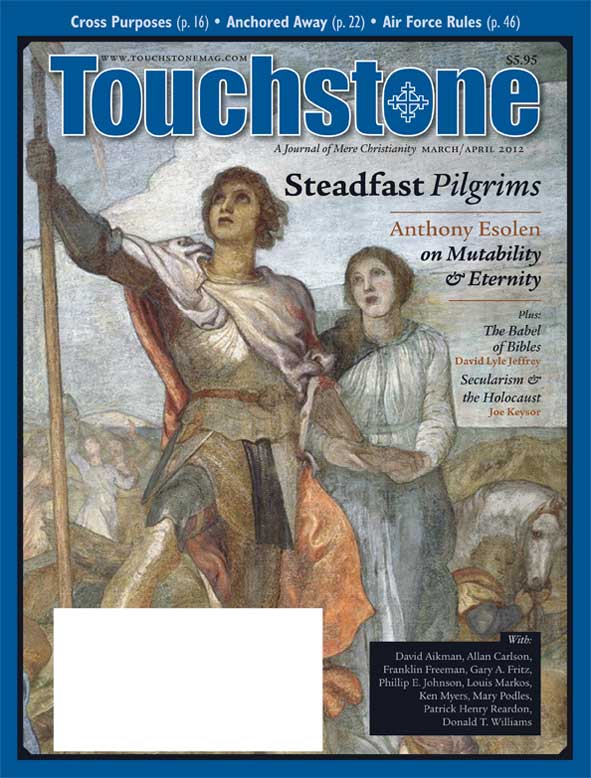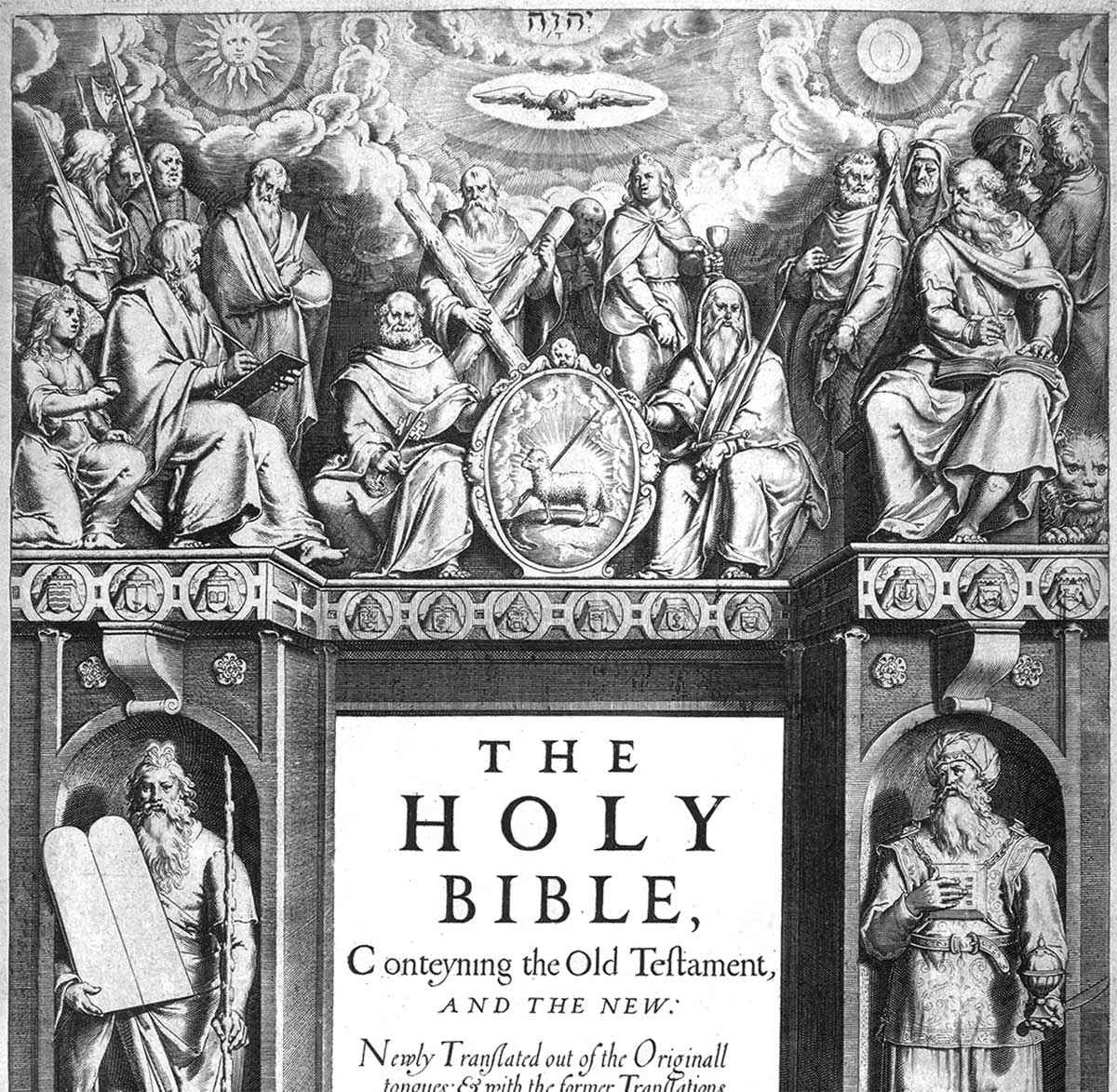God’s Place & Ours
On Mutability & the Lost Virtue of Steadfastness
by Anthony Esolen
Nearing the end of his life, the poet Edmund Spenser abandoned his project of writing an epic poem in twelve books, each celebrating a virtue rooted in nature and oriented beyond nature to the kingdom of God. But found among his works at his death were two cantos, and two stanzas of a third, apparently devoted to the virtue of constancy. These cantos recount a myth of how the goddess Mutability long ago attempted to assert superiority over all the other gods. Her argument is not only that she deserves to rule by virtue of her lineal descent from Saturn, but that she does rule de facto. All things change; and to prove her point, she brings forth a pageant of the seasons and the months and the hours, and argues that even the planets above, associated with the pantheon of pagan gods, wander from their paths.
The decision is to be rendered by a mysterious God of Nature, whose face is veiled, because no mortal can endure to look upon her brightness, like that of Christ transfigured before the astounded apostles on the holy mountain. At stake is no less than the meaning of the natural world. Is it a cosmos, or a chaos?

Nature must acknowledge change; it is everywhere to be seen. But she denies that Mutability has the last word. The meaning of change is not dissolution, but elevation into a higher order. Therefore, things in the natural world do not fall out of existence so much as they rise into it. Change is a mode of their being, but it is neither their essence nor their end:
I well consider all that you have said,
And find that all things steadfastness do hate
And changed be; yet being rightly weighed,
They are not changed from their first estate,
But by their change their beings do dilate,
And turning to themselves at length again
Do work their own perfection so by fate;
Then over them change doth not rule and reign
But they rule over change, and do their states maintain.
Steadfast Pilgrimage
The implications for the Christian life are subtle and profound. On the one hand, because we seek a firm abode, an eternal dwelling place, we find ourselves like strangers in a strange land, a pilgrim people, wandering upon the earth. Yet that dwelling place must also complete this life of pilgrimage. The destination is present in the first step taken; the fruit is inchoate in the seed. Here the words of the Psalmist should ring in our hearts, “I rejoiced when I heard them say, ‘Let us go up to the house of the Lord.’” In this sense, we are not wandering at all.
So the poet, in the last verses he ever wrote, and touched perhaps by the shadow of death, sees our days of change in the context of the seventh day, the consummation of the created world in the eternal Sabbath of God:
Then gin I think on that which Nature said,
Of that same time when no more change shall be
But steadfast rest of all things, firmly stay’d
Upon the pillars of Eternity,
That is contraire to Mutability;
For all that moveth doth in change delight,
But thenceforth all shall rest eternally
With Him that is the God of Sabaoth hight:
O that great Sabaoth God, grant me that Sabbath’s sight.
The key word in these two stanzas is steadfast. Spenser wishes us to understand its inner meaning, that of remaining fixed fast in one stead or place. The idea is deeply rooted in Scripture. The author of the letter to the Hebrews, in praising the firm faith of Abraham and the patriarchs, who saw the promises from afar and sojourned towards them as “pilgrims on the earth” (Heb. 11:13), reveals the unchanging and utterly reliable promise of God, who does not move from his vow, so that our hope can rest in him as surely as in an anchor:
Anthony Esolen is Distinguished Professor of Humanities at Thales College and the author of over 30 books, including Real Music: A Guide to the Timeless Hymns of the Church (Tan, with a CD), Out of the Ashes: Rebuilding American Culture (Regnery), and The Hundredfold: Songs for the Lord (Ignatius). He has also translated Dante’s Divine Comedy (Random House) and, with his wife Debra, publishes the web magazine Word and Song (anthonyesolen.substack.com). He is a senior editor of Touchstone.
subscription options
Order
Print/Online Subscription
Get six issues (one year) of Touchstone PLUS full online access including pdf downloads for only $39.95. That's only $3.34 per month!
Order
Online Only
Subscription
Get a one-year full-access subscription to the Touchstone online archives for only $19.95. That's only $1.66 per month!
bulk subscriptions
Order Touchstone subscriptions in bulk and save $10 per sub! Each subscription includes 6 issues of Touchstone plus full online access to touchstonemag.com—including archives, videos, and pdf downloads of recent issues for only $29.95 each! Great for churches or study groups.
Transactions will be processed on a secure server.
more from the online archives

35.4—Jul/Aug 2022
The Death Rattle of a Tradition
Contemporary Catholic Thinking on the Question of War by Andrew Latham
calling all readers
Please Donate
"There are magazines worth reading but few worth saving . . . Touchstone is just such a magazine."
—Alice von Hildebrand"Here we do not concede one square millimeter of territory to falsehood, folly, contemporary sentimentality, or fashion. We speak the truth, and let God be our judge. . . . Touchstone is the one committedly Christian conservative journal."
Support Touchstone
—Anthony Esolen, Touchstone senior editor








